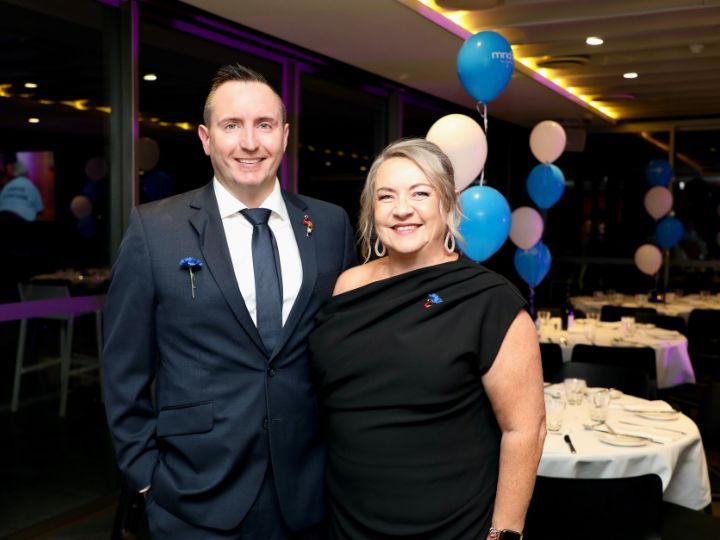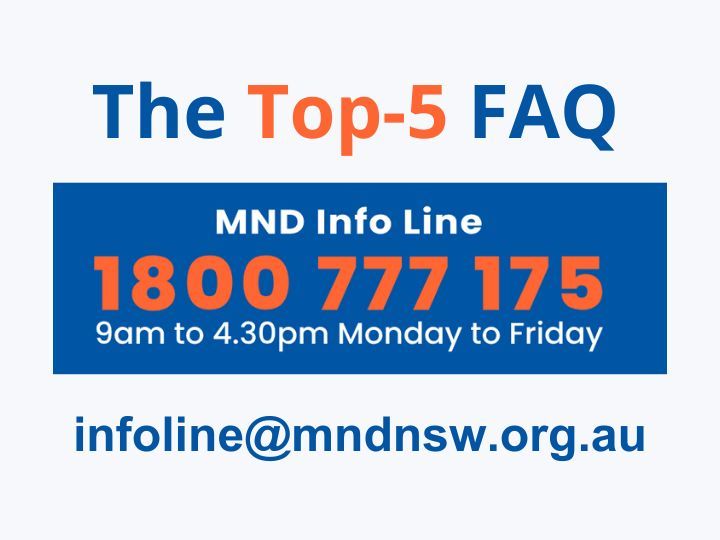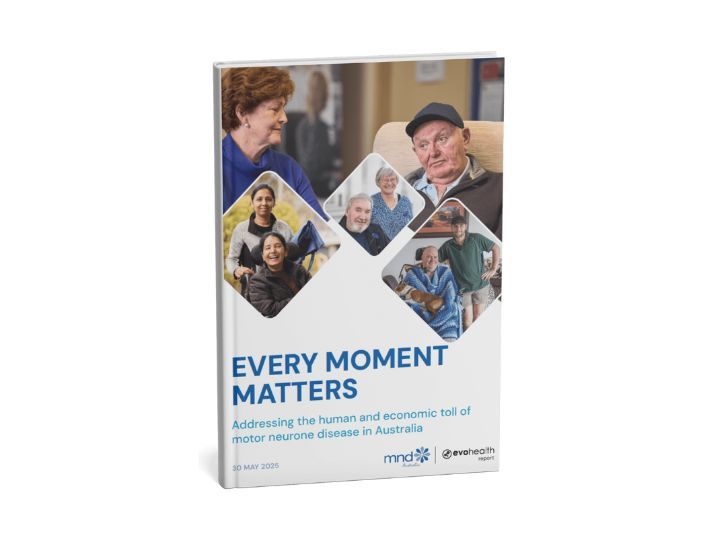Presented by Professor Steve Vucic. Summary provided by MND NSW
There are many worldwide collaborative research projects searching for new and effective treatments for MND and this includes clinical trials. It is important to remember that clinical trials are not treatments, they are scientific experiments to test out potential new treatments.
As a clinical trial aims to find out whether a drug is an effective treatment for MND, there needs to be a comparison made between the trial treatment and a placebo (contains no active compound e.g., sugar pill). This means that trial participants may not receive the new drug under investigation as they will be randomly allocated into different groups. participating in research
Clinical trials are divided into four phases, and the later the Phase of the trial the more steps it has passed through to ensure that the treatment is safe and effective.
![]()
Riluzole
There is currently only one medication approved in Australia called Riluzole. Riluzole is prescribed for the treatment of amyotrophic lateral sclerosis (ALS) and progressive bulbar palsy (PBP) – the most common types of MND. Riluzole has been shown to slow the progression of MND and may increase life expectancy by as much as 19 months, so it is still the most effective drug that is currently available.
In Australia, Riluzole is made available by the government at a more affordable price for eligible people through the Pharmaceutical Benefits Scheme (PBS). Eligible people must have a special kind of prescription – an “authority prescription”.
Riluzole comes in tablet and liquid form (Teglutik) and can be bought from a pharmacy with a script from a neurologist or general practitioner (GP).
Read more:
Edaravone (Radicava/Radicut)
The drug Edaravone was developed by Mitsubishi Tanabe (MT) Pharma Corporation in Japan. It was originally used to treat stroke patients but in 2015 it was tested for use in people with Amyotrophic Lateral Sclerosis (MND). The results suggested that it can slow progression in some people with MND and increase survival by 2-4 months. It is most beneficial as an early treatment.
It is currently approved for use in Japan, South Korea, the United States, and a few other countries, but has not been approved by the Therapeutic Goods Authority for use in Australia. Larger studies and more data are still needed to show how effective it is with slowing the progression of MND.
Some important points about Edaravone:
- has antioxidant properties and is thought to protect nerve cells by mopping up damaging “free radicals” in the body.
- it needs to be administered at a hospital or clinic by a doctor via an intravenous infusion and involves a 60-minute IV infusion every day for 14 days, followed by a 14-day drug-free period.
- The next cycles of treatment also require daily dosing for 10 of 14 days, followed by a 14-day drug-free period.
- It can potentially be accessed in Australia via the Special Access Scheme or the Authorised Prescriber Scheme.
- the current cost is around $US26,000 for a six-month course of treatment (2017 figures) – this is payable by the individual seeking treatment as it is not on the PBS.
- There are ongoing clinical trials for an oral version.
Read more:
- What next for edaravone? November 2021 - What next for edaravone? - MND Research Blog
- Oral Edaravone (January 2022)
CENTAUR - AMX0035 trial
Amylyx Pharmaceuticals began testing a combination product called AMX0035 as a potential treatment for ALS and other neurodegenerative disorders in 2013. AMX0035 is an oral drug that combines two compounds called sodium phenylbutyrate (PB) and tauroursodeoxycholic acid (TUDCA).
Results released in late 2021 from the Phase 2 clinical trial involving 137 participants with ALS showed promising data that it slows disease progression and can prolong life. A 48-week, Phase 3 clinical trial - PHOENIX (NCT05021536), is now currently underway in more than 65 sites across the U.S. and Europe.
Health Canada approved ALBRIOZA™ (sodium phenylbutyrate and ursodoxicoltaurine), with conditions, for the treatment of ALS in June 2022. The approval of ALBRIOZA is based on data from the Phase 2 trial. One of the conditions of the approval is the provision of data from the ongoing Phase 3 trial which expects to release results in 2024.
The U.S. Food and Drug Administration (FDA) is planning to discuss the New Drug Application for AMX0035 for the treatment of ALS on Wednesday, September 7, 2022. The European Medicines Agency (EMA) is also reviewing an application for AMX0035 for the treatment of ALS in Europe.
The products in AMX0035 include:
- TUDCA - This is widely available over the counter as part of various supplements.
- Sodium phenylbutyrate (PB) – This is only available on prescription in Australia.
It is unknown whether taking these compounds separately will have the same effect as AMX0035, or if it is the combination that is needed. It is also unknown what the purity level of an over-the-counter TUDCA and sodium phenylbutyrate source will be.
Regarding self-treatment, individuals are strongly encouraged to speak with their neurologist or doctor first before considering taking these compounds. The promising early results from the clinical trials only relate to the combination of PB and TUDCA at the concentrations and purity that is being investigated.
Read more:
- Amylyx AMX0035 (January 2022)
- Trial of Sodium Phenylbutyrate – Taurursodiol for Amyotrophic Lateral Sclerosis | NEJM
- Tauroursodeoxycholic acid | MND Association
CNM-Au8
CNM-Au8 is an oral liquid suspension of gold nanocrystals designed to improve nerve cells’ survival and function. Although the RESCUE-ALS Phase 2 trial completed in November 2021 didn’t meet its primary or secondary endpoints, there was some evidence of a longer-term survival benefit and a reduction in disease progression.
Clene Nanomedicine announced in July its additional data from its extension trial which indicates that participants who were part of the trial group that received CNM-Au8 lived longer than those who received it nine months later in the extension phase. Analysis from the trial has suggested a 70% decreased risk of death, but further studies are needed to investigate this.
A larger study is planned for 2023 to further investigate the potential benefit of CNM-Au8.
Read more:
![]()
Other trial treatments
Professor Vucic also mentioned some other compounds that have been investigated and are at different points of clinical trial, but we will not elaborate on them in this blog as there is either not enough data yet, insignificant results or further studies planned before a more definitive result can be given.
These included:
- Methylcobalamin - high dose vitamin B12 - High-dose B12
- Masitinib - Update on clinical trials - part 2 - MND Research Blog
- Ezogabine - Ezogabine ALS Clinical Trial
- Triumeq - MND clinical trial updates - Part 1 - MND Research Blog
- Tofersen - MND clinical trial updates - Part 1 - MND Research Blog and FDA Review of Tofersen - Biogen
- Lithium carbonate (UNC13a trial) - MAGNET Platform Trial | MND Association
Brain and Nerve research Centre – Sydney
- Professor Steve Vucic, Co-Director:
This email address is being protected from spambots. You need JavaScript enabled to view it. - Professor Parvathi Menon, Research Lead at Concord Hospital:
This email address is being protected from spambots. You need JavaScript enabled to view it. - Julie Ryder, Clinical Research Nurse:
This email address is being protected from spambots. You need JavaScript enabled to view it.
The International Alliance of ALS/MND Associations
MND Australia is a member of the International Alliance of ALS/MND Associations. The aim of the Alliance is to provide an international community and to improve care and support for people living with MND around the world.
One of the resources of the International Alliance is the Scientific Advisory Council (SAC). The role of the International Alliance of ALS/MND Associations’ Scientific Advisory Council is to review and provide global perspective on scientific and biomedical announcements, information and opportunities relating to ALS/MND.
A key resource produced by the SAC is a series of “Briefing Notes” that provide background and updates on important advances and issues related to MND research. Scientific Advisory Council (SAC) | MND Australia
![]()
Research & Clinical trials in Australia
Clinical trials test new treatments and interventions in people to find out if they are safe and/or effective. If you are considering involvement in a clinical trial, you will first need to speak with your neurologist to assess your eligibility. Get involved in research | MND Australia
MND Australia’s website lists information on clinical trials in Australia.
Clinical trials | MND Australia - further details on eligibility criteria, phase of trial and lead researcher/neurologist can be found by following the links on the MND Australia website.
MiNDAUS patient registry
MiNDAUS is a patient registry developed from a partnership of Australian MND researchers, clinicians and organisations, which aims to develop a nationally co-ordinated and patient-centred approach to MND research and care.
You can choose to join the Registry for your own purposes, or you can consent to share your clinical information with registered health professionals and researchers. Find out more and how to register here: MiNDAUS Patient Registry
ALS Untangled
In 2009, ALS Untangled was formed to help people with ALS (MND) make better informed decisions about alternative or off-label products. The team at ALS Untangled includes 120 clinicians and scientists from 11 countries and they collaboratively review new treatments and therapies that people within the ALS/MND community would like to know more about.
When someone is diagnosed with a condition such as MND, they often turn to the Internet for answers. There they can find many alternative therapies and off-label treatments, most being sold or offered in “trials” with a large up-front cost. These treatments sometimes make extraordinary claims such as “clinically proven”, “guaranteed” and “no risk”. Unfortunately, the evidence backing up these claims can be flawed, inaccurate or altogether absent. Non-scientists may not always recognize the problems with such evidence and so may over-estimate the potential benefits. They may also underestimate the potential risks of these alternative or off label treatments.
The ALS Untangled team developed a list of ‘red flags’ for people to be aware of. Read more here: “Ten red flags”
![]()




